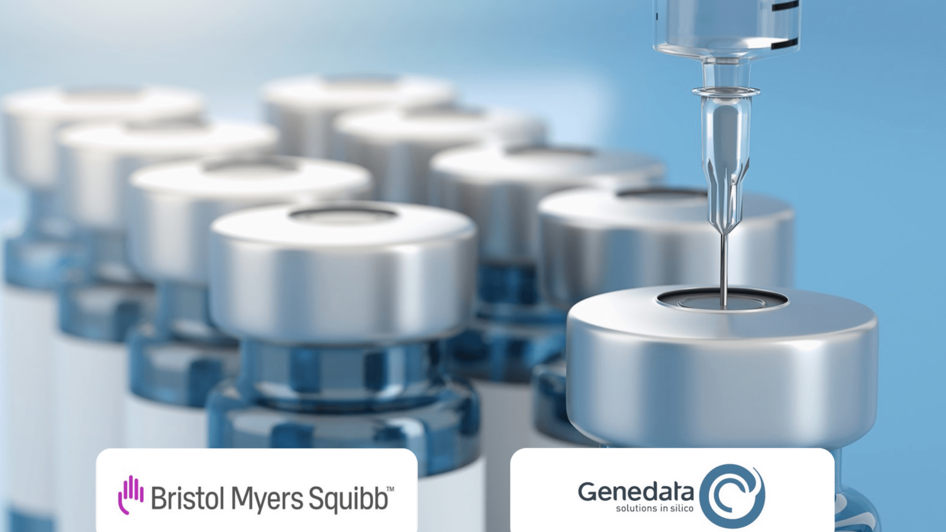
Biosafety Open Forum
Industry Workshop on the Present and Future
of NGS-Based Biosafety Testing, co-hosted by BMS
First Virtual Industry Workshop on NGS-Based Biosafety Testing
In collaboration with Bristol-Myers Squibb, Genedata Selector organized and co-hosted an industry workshop on December 10th, 2020.
This interactive event brought together key experts from 9 companies to facilitate knowledge sharing and industry discussions related to key challenges and opportunities in the field of biosafety testing. Featured themes included NGS-based adventitious virus detection, its impact in accelerating clinical timelines, and the benefits and challenges related to implementation in biopharma companies.
This event was an opportunity for the biopharma industry to raise questions to experts in the field while sharing and exchanging ideas regarding best practices using NGS-based biosafety as well as the need to identify adventitious agents during biopharma R&D.
Presentations
Rapid Methods for Adventitious Virus Detection - Acceleration of Clinical Timelines - Speed to Patient
Jürgen Müllberg, Principal Scientist Viral Safety SME, BMS
Contamination of a biological product with viruses, potentially harmful for humans, is of concern for therapeutics derived from human and animal sources, i.e. plasma, and for protein therapeutics and vaccines produced in mammalian cells. More recent “Advanced Therapeutic Medicinal Products (ATMPs)”, such as gene and cell therapies, share the same concern. Tests for viral contaminants are performed at several stages of manufacturing. Current tests for detection of viruses are lengthy; cell culture based assays and animal experiments are required. Alternative molecular tests, such as “next generation sequencing (NGS)”, provide faster results, and can eventually replace in vivo animal studies. It is noteworthy that identification of a viral contaminant that evaded detection in classical tests, by NGS, has been demonstrated. Since NGS based virus tests yield results significantly faster than current assays, additional applications for in-process testing and viral contamination control can be envisioned. In this presentation applications for unbiased and targeted NGS in testing of biologics will be discussed.
Integration of NGS Biosafety Methods in Biopharma Companies - Benefits & Current Limitations
Fabio La Neve, Head of Analytical Development, Ibex at Lonza
Over the past few decades, technological advancements in NGS have enabled biopharmaceutical companies to adopt NGS for biosafety testing. During a typical manufacturing process, NGS-based biosafety is implemented at several stages to accelerate production and prevent large-scale contamination. Although some pharmaceutical companies benefit from faster results and reduced costs, widespread implementation of this technique has been slow due to challenges and complexities related to sample preparation, data analysis, bioinformatics, and evolving instruments. To overcome these limitations, we need to bring about harmonization by introducing standards to the terms, methods, and technologies used in this process. Now is the time to facilitate conversation between key players in healthcare to harmonize and improve the use of NGS-based biosafety in the pharmaceutical industry.
Horses for Courses: Thoroughbred Bioinformatics Pipelines for Virologists
Sebastien Ribrioux, Head of Scientific Consulting Genedata
As the efforts to harness NGS for adventitious agent detection gather pace, a greater understanding is emerging of how this technology can best be applied in different situations. Experimental protocols and bioinformatics pipelines are, for example, tailored to the type of therapeutic agent being produced, or the stage of production at which testing is taking place. Computational biologists face many choices when crafting NGS read processing and analysis pipelines, and may create several pipelines depending on different needs. Ideally, this expertise and knowledge should be encapsulated in a way that virologists can run the pipeline easily themselves, with results presented clearly so they can bring their expertise to bear. Where appropriate, the process should be automated to the extent possible: this is the next hurdle.
Agenda of Industry Workshop on December 10th, 2020
EST | CET | Topic | Speaker |
|---|---|---|---|
| 9:00 | 15:00 | Welcome and Introduction to the Participants | Anurag Khetan, Senior Director Biologics Development, Bristol-Myers Squibb & Thomas Hartsch, Head of Genedata Selector |
| 9:15 | 15:15 | Rapid Methods for Adventitious Virus Detection: Acceleration of Clinical Timelines - Speed to Patient | Jürgen Müllberg, Principal Scientist / Viral Safety SME, Bristol-Myers Squibb |
| 9.45 | 15:45 | Integration of NGS Biosafety Methods in Biopharma Companies: Benefits and Current Limitations | Fabio La Neve, Head of Analytical Development, Ibex at Lonza |
| 10:05 | 16:05 | Horses for Courses: Thoroughbred Bioinformatics Pipelines for Virologists | Sebastien Ribrioux, Head of Scientific Consulting, Genedata |
| 10:25 | 16:25 | BREAK | |
| 10:40 | 16:40 | OPEN DISCUSSION | All Participants, moderated by Genedata |
| 11:50 | 17:50 | Demonstration of Viral Safety Data Analysis Workflow | Namrata Sarkar, Scientific Account Manager, Genedata |
12:00 - 12:10 | 18:00 - 18:10 | Final Remarks | Thomas Hartsch, Head of Genedata Selector |
Disclaimer: “The purpose of our gathering and discussions is to start a pre-competitive R&D collaboration and discuss best practices using NGS-bases biosafety to identify adventitious agents during biopharma R&D. We consider our discussions to be pre-competitive in nature as the best practices can be used very broadly in the industry. Please keep the conversation to this topic and refrain from bringing up topics that could be considered anti-competitive under antitrust/competition laws, such as pricing.”